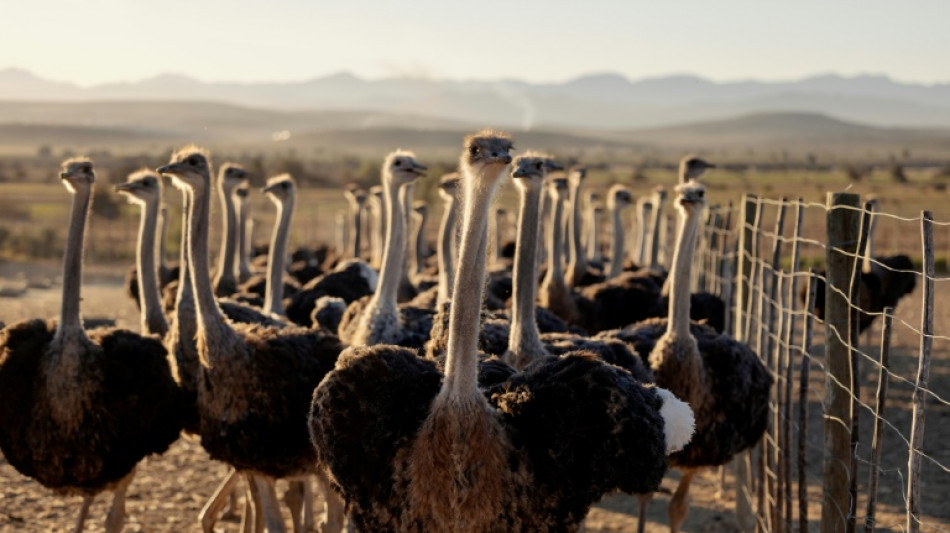
-
 Keller overtime strike gives USA Olympic women's ice hockey gold
Keller overtime strike gives USA Olympic women's ice hockey gold
-
NASA delivers harsh assessment of botched Boeing Starliner test flight

-
 US Fed Governor Miran scales back call for rate cuts this year
US Fed Governor Miran scales back call for rate cuts this year
-
Gu qualifies for Olympic halfpipe final marred by horror crash

-
 Trump issues Iran with ultimatum as US ramps up military presence
Trump issues Iran with ultimatum as US ramps up military presence
-
Peru's brand-new president under fire for child sex comments

-
 UK police hold ex-prince Andrew for hours in unprecedented blow
UK police hold ex-prince Andrew for hours in unprecedented blow
-
Former Olympic freeski halfpipe champion Sharpe crashes heavily

-
 Former Olympic champion Sharpe suffers heavy halfpipe crash
Former Olympic champion Sharpe suffers heavy halfpipe crash
-
Belarus says US failed to issue visas for 'Board of Peace' meeting

-
 Forest boss Pereira makes perfect start with Fenerbahce rout in Europa play-offs
Forest boss Pereira makes perfect start with Fenerbahce rout in Europa play-offs
-
Alcaraz fights back to book last four berth in Qatar

-
 England captain Itoje warns of 'corrosive' social media after abuse of Ireland's Edogbo
England captain Itoje warns of 'corrosive' social media after abuse of Ireland's Edogbo
-
War-weary Sudanese celebrate as Ramadan returns to Khartoum

-
 Townsend expects recalled Scotland duo to shine in Six Nations clash with Wales
Townsend expects recalled Scotland duo to shine in Six Nations clash with Wales
-
Peru's new president under fire for child sex comments

-
 UK king opens London fashion week despite brother's arrest
UK king opens London fashion week despite brother's arrest
-
Belarus frees opposition politician Statkevich

-
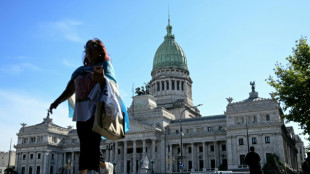 Striking Argentine workers slow down Buenos Aires in protest over labor reforms
Striking Argentine workers slow down Buenos Aires in protest over labor reforms
-
Starlink loss a blow to Russian forces in Ukraine: experts

-
 UN's Sudan probe finds 'hallmarks of genocide' in El-Fasher
UN's Sudan probe finds 'hallmarks of genocide' in El-Fasher
-
Belarus frees opposition politician Statkevich: wife

-
 Rocket re-entry pollution measured in atmosphere for first time
Rocket re-entry pollution measured in atmosphere for first time
-
Airbus ready to build two new European fighters if countries want

-
 Canada makes push to attract skilled migrants, including for defence
Canada makes push to attract skilled migrants, including for defence
-
US threatens to leave IEA if net zero focus remains

-
 Walmart outlines big AI ambitions as it reports mixed results
Walmart outlines big AI ambitions as it reports mixed results
-
Trump kicks off his 'Board of Peace,' as war clouds loom on Iran
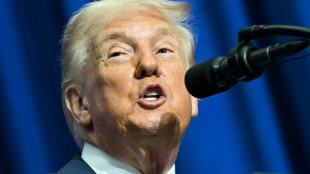
-
 UK pubs to stay open late if home nations reach World Cup knockouts
UK pubs to stay open late if home nations reach World Cup knockouts
-
TotalEnergies in high-stakes French trial over climate change

-
 Bosnia probes fascist salutes at Croatian singer's concert
Bosnia probes fascist salutes at Croatian singer's concert
-
US and Israel issue dire warnings to Iran alongside US military buildup

-
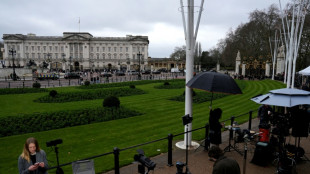 British public cheer Andrew's arrest with a smile and relief
British public cheer Andrew's arrest with a smile and relief
-
Argentine workers go on strike to protest Milei's labor reforms
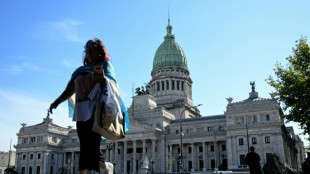
-
 Nakai targets Olympic skating upset as 'skimo' makes debut
Nakai targets Olympic skating upset as 'skimo' makes debut
-
What we know about ex-prince Andrew's friendship with Epstein
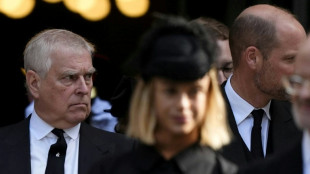
-
 US trade deficit in goods widens to new record in 2025
US trade deficit in goods widens to new record in 2025
-
Oil extends gains on US-Iran tensions, stocks retreat

-
 Williams 'on the back foot' after missing Barcelona: Albon
Williams 'on the back foot' after missing Barcelona: Albon
-
Real Madrid submit evidence to UEFA in Vinicius racism probe

-
 Olympics rev up Milan's renewal but locals fear price to pay
Olympics rev up Milan's renewal but locals fear price to pay
-
Cardona Coll, Fatton win Olympic-debuting ski mountaineering sprint golds

-
 MSF will keep operating in Gaza 'as long as we can': mission head
MSF will keep operating in Gaza 'as long as we can': mission head
-
Russian Filippov wins first medal at Milan-Cortina Games for individual neutral athletes

-
 Italian Milan takes sprint honours at UAE Tour
Italian Milan takes sprint honours at UAE Tour
-
Dozens killed in jihadist attacks in northwest Nigeria

-
 Zimbabwe unbeaten in T20 World Cup after six-wicket Sri Lanka win
Zimbabwe unbeaten in T20 World Cup after six-wicket Sri Lanka win
-
Postecoglou admits taking Nottingham Forest post a 'bad decision'

-
 Switzerland's Fatton wins women's ski mountaineering sprint on Olympic debut
Switzerland's Fatton wins women's ski mountaineering sprint on Olympic debut
-
Kinghorn, Van der Merwe return for Scotland against Six Nations strugglers Wales


Ostrich and emu ancestor could fly, scientists discover
How did the ostrich cross the ocean?
It may sound like a joke, but scientists have long been puzzled by how the family of birds that includes African ostriches, Australian emus and cassowaries, New Zealand kiwis and South American rheas spread across the world -- given that none of them can fly.
However, a study published Wednesday may have found the answer to this mystery: the family's oldest-known ancestors were able to take wing.
The only currently living member of this bird family -- which is called palaeognaths -- capable of flight is the tinamous in Central and South America. But even then, the shy birds can only fly over short distances when they need to escape danger or clear obstacles.
Given this ineptitude in the air, scientists have struggled to explain how palaeognaths became so far-flung.
Some assumed that the birds' ancestors were split up when the supercontinent Gondwana started breaking up 160 million years ago, creating South America, Africa, Australia, India, New Zealand and Antarctica.
However, genetic research has shown that "the evolutionary splits between palaeognath species happened long after the continents had already separated," lead study author Klara Widrig of the Smithsonian National Museum of Natural History told AFP.
- Wing and a prayer -
Widrig and colleagues analysed the specimen of a lithornithid, the oldest palaeognath group for which fossils have been discovered. They lived during the Paleogene period 66-23 million years ago.
The fossil of the bird Lithornis promiscuus was first found in the US state of Wyoming, but had been sitting in the Smithsonian museum's collection.
"Because bird bones tend to be delicate, they are often crushed during the process of fossilisation, but this one was not," she said.
"Crucially for this study, it retained its original shape," Widrig added. This allowed the researchers to scan the animal's breastbone, which is where the muscles that enable flight would have been attached.
They determined that Lithornis promiscuus was able to fly -- either by continuously beating its wings or alternating between flapping and gliding.
But this discovery prompts another question: why did these birds give up the power of flight?
- Taking to the ground -
"Birds tend to evolve flightlessness when two important conditions are met: they have to be able to obtain all their food on the ground, and there cannot be any predators to threaten them," Widrig explained.
Other research has also recently revealed that lithornithids may have had a bony organ on the tip of their beaks which made them excel at foraging for insects.
But what about the second condition -- a lack of predators?
Widrig suspects that palaeognath ancestors likely started evolving towards flightlessness after dinosaurs went extinct around 65 million years ago.
"With all the major predators gone, ground-feeding birds would have been free to become flightless, which would have saved them a lot of energy," she said.
The small mammals that survived the event that wiped out the dinosaurs -- thought to have been a huge asteroid -- would have taken some time to evolve into predators.
This would have given flightless birds "time to adapt by becoming swift runners" like the emu, ostrich and rhea -- or even "becoming themselves dangerous and intimidating, like the cassowary," she said.
The study was published in the Royal Society's Biology Letters journal.
B.Finley--AMWN


